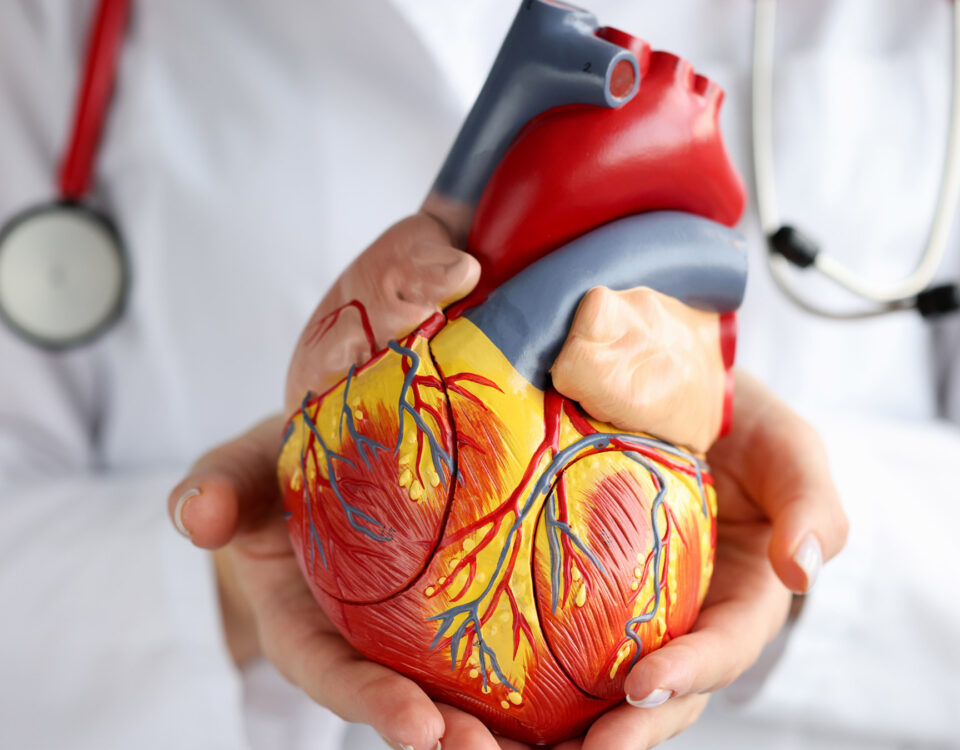
Best Cardiology Tips for Preventing Heart Disease
August 12, 2025
How to Start a Medical Health Blog from Scratch
August 12, 2025Heart health is one of the most important aspects of overall well-being, and diet plays a major role in keeping your heart strong and functioning properly. Cardiologists—doctors who specialize in the heart and blood vessels—often emphasize the power of a healthy diet to prevent heart disease, lower cholesterol, and maintain optimal blood pressure.
In this article, we’ll explore the key elements of a heart-healthy diet as recommended by cardiologists, explain why these foods matter, and offer practical tips to make heart-smart eating a part of your daily routine.
Why Diet Matters for Heart Health
Your heart works tirelessly to pump blood throughout your body. What you eat directly affects the health of your heart and arteries. A diet high in unhealthy fats, salt, and sugar can lead to clogged arteries, high blood pressure, and obesity—all major risk factors for heart disease.
On the other hand, a balanced diet rich in nutritious foods supports healthy blood vessels, lowers inflammation, and helps control cholesterol and blood pressure. Cardiologists recommend specific diets because they have been shown to reduce heart disease risk and improve longevity.
Key Components of a Cardiologist-Recommended Heart-Healthy Diet
1. Load Up on Fruits and Vegetables
Fruits and veggies are packed with vitamins, minerals, antioxidants, and fiber that protect your heart. They help lower blood pressure and reduce inflammation.
Tip: Aim for at least 5 servings a day, including a variety of colors to get a broad range of nutrients. Fresh, frozen, or canned (without added sugar or salt) all count.
2. Choose Whole Grains Over Refined Grains
Whole grains like brown rice, oats, barley, and whole wheat contain fiber and nutrients that help lower cholesterol and stabilize blood sugar.
Refined grains (white bread, white rice) lack these benefits and can cause spikes in blood sugar.
Tip: Swap white bread and pasta for whole grain versions. Try oatmeal for breakfast instead of sugary cereals.
3. Opt for Healthy Fats
Not all fats are bad. Cardiologists encourage consuming unsaturated fats, which improve cholesterol levels and support heart health.
Sources include:
- Olive oil and canola oil
- Avocados
- Nuts and seeds
- Fatty fish like salmon, mackerel, and sardines
Limit saturated fats found in red meat, butter, and full-fat dairy, and avoid trans fats (found in many processed foods).
4. Include Lean Protein Sources
Protein is essential, but some sources are healthier for your heart than others.
Choose:
- Poultry without skin
- Fish (especially oily fish rich in omega-3 fatty acids)
- Legumes (beans, lentils, chickpeas)
- Low-fat dairy products
Limit red and processed meats like bacon and sausage, which have been linked to higher heart disease risk.
5. Reduce Sodium (Salt) Intake
Too much sodium raises blood pressure, increasing heart disease risk.
The American Heart Association recommends no more than 2,300 milligrams (about one teaspoon) of sodium per day, ideally aiming for 1,500 milligrams.
Tips to reduce sodium:
- Cook more meals at home to control salt.
- Use herbs and spices instead of salt for flavor.
- Avoid processed and fast foods, which often have hidden salt.
6. Cut Back on Added Sugars
Sugary drinks, desserts, and snacks contribute to obesity, diabetes, and inflammation—all harmful to the heart.
Read labels to avoid hidden sugars, and replace sugary drinks with water, herbal teas, or sparkling water with a splash of fruit juice.
7. Stay Hydrated
Water is crucial for all bodily functions, including maintaining healthy blood flow. Aim for 8 glasses of water a day, more if you are active or in a hot climate.
Practical Tips to Make the Heart-Healthy Diet Work for You
- Plan your meals: Create a weekly meal plan focused on fresh, whole foods.
- Cook at home: This gives you control over ingredients and portion sizes.
- Snack smart: Choose nuts, fruit, or yogurt instead of chips or cookies.
- Read labels: Look for sodium, sugar, and unhealthy fats.
- Limit eating out: Restaurant food is often higher in salt, sugar, and unhealthy fats.
- Portion control: Eating the right amounts helps maintain healthy weight.
- Enjoy meals: Eating slowly and mindfully can improve digestion and satisfaction.
Benefits of Following a Cardiologist-Recommended Diet
- Lower blood pressure and cholesterol levels
- Reduced risk of heart attacks and strokes
- Better weight management
- Improved energy levels and mood
- Enhanced longevity and quality of life
5 FAQs About Cardiologists’ Recommended Diet for a Healthy Heart
1. Can I still eat my favorite foods on a heart-healthy diet?
Yes! Moderation is key. You don’t have to give up treats entirely—just enjoy them occasionally and focus most meals on heart-friendly foods.
2. How soon will I see results from changing my diet?
Some benefits, like improved energy and digestion, may happen within weeks. Blood pressure and cholesterol improvements often take a few months.
3. Are supplements necessary for heart health?
Supplements can help if you have specific deficiencies, but it’s best to get nutrients from food. Talk to your doctor before starting any supplements.
4. Is it okay to eat fish every day?
Eating fish 2-3 times a week is recommended for omega-3 benefits. Daily consumption is generally fine if you choose low-mercury fish and prepare them healthily.
5. Can a vegetarian or vegan diet be heart-healthy?
Absolutely! Plant-based diets rich in fruits, vegetables, whole grains, legumes, nuts, and seeds support heart health. Just ensure you get enough protein and essential nutrients.
Final Thoughts
Eating a heart-healthy diet doesn’t have to be complicated or boring. By following cardiologists’ recommendations—focusing on whole, nutrient-rich foods, healthy fats, and limiting salt and sugar—you can protect your heart and improve your overall health.
Remember, diet is just one part of heart health. Combine it with regular exercise, stress management, avoiding smoking, and routine health check-ups for the best results.
Your heart works hard for you every day—show it some love with the right foods!





